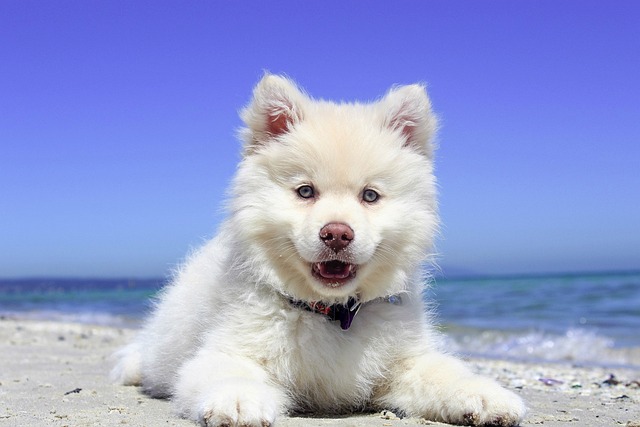
How do i train my dog to be obedient?
Watching your dog dart across the park ignoring your calls isn’t just frustrating—it can put them at risk near busy streets or public spaces.
When walking a dog, if the dog suddenly barks or even bites at other dogs, it can make the owner feel embarrassed and worried. Dogs exhibiting aggression towards other dogs may not only harm other dogs, but also affect their own dogs' social interactions and even lead to disputes. As dog owners, it is our responsibility to help them learn to get along well with other dogs. Let's take a look at how to stop dogs from being aggressive towards other dogs.
Dogs can develop aggression towards other dogs for various reasons. Territorial awareness is a common factor, and dogs consider their frequently active areas as their territory. When other dogs invade, they will launch attacks to defend their territory, such as on the lawn of a residential area, where their own dog will give a low growl warning to approaching unfamiliar dogs. Competition for resources is also one of the triggers. In the eyes of dogs, food, toys, and other valuable resources. When other dogs approach, they instinctively compete for them. For example, if two dogs see a beloved ball at the same time, they may have conflicts over it. The competition for social status cannot be ignored. Dogs are social animals, and there is a hierarchical order between them. In order to obtain higher status, they may challenge other dogs.
In addition, conflicts between gender and breeding season can also lead to aggression in dogs, such as male dogs competing with female dogs for mating rights during the breeding season. When dogs are sick or in physical pain, they may also exhibit aggression towards other dogs due to emotional agitation. Some dogs, due to a lack of contact with other dogs since childhood, have not mastered the correct social skills. When encountering their own kind, they may exhibit aggression due to nervousness and fear.
After understanding the reasons, we also need to learn to recognize the attack signals of dogs. When a dog makes a low growl, it is issuing a warning, indicating that it may launch an attack at any time; Exposing teeth is also a clear signal of attack, as if telling the other person to 'stay away from me'; Dogs have an upright body and a raised tail, presenting a threatening posture that is also a sign of aggression; Suddenly rushing towards other dogs, it becomes even more clear the intention of the attack.

When we discover that a dog is aggressive towards other dogs, we can take some effective measures to stop it. Firstly, behavioral training involves finding a trusted friend and a gentle dog to assist. Let your dog sit quietly next to you, secure it with a leash, and then let your friend bring your dog into your dog's line of sight, maintaining a safe distance. Use delicious snacks to divert your dog's attention until your friend leaves with your dog. After repeating this process several times, tentatively let the two dogs gradually approach and observe their own dogs' reactions. If they still exhibit aggressive behavior, continue with the previous steps. Once the dog shows calm behavior, immediately reward it with small snacks to reinforce this calm state.
Environmental management is also important. In places where dogs are prone to aggressive behavior, such as busy parks, try to avoid bringing them or ensure that dogs are always under effective control and away from other dogs that may cause conflicts. When a dog encounters other dogs and exhibits aggressive behavior, the owner must remain calm and never use a leash to forcefully pull it, as the owner's nervousness can be transmitted to the dog, making it even more uneasy.
Taking your dog for a health check-up is also essential. If your dog's aggressive behavior suddenly appears or becomes more severe, it is likely that there is a physical problem, such as neurological disorders or other physical discomfort. Seeking medical attention in a timely manner can eliminate these health hazards.
If the aggressive behavior of the dog has not improved despite trying many methods, it is necessary to seek professional help. Professional pet behaviorists or trainers can develop personalized behavior correction plans based on the specific situation of the dog.
Dogs are our good companions in life, bringing us joy and companionship. When a dog shows aggression towards other dogs, do not easily give up or punish it. Instead, guide it with love and patience to help it learn the correct social skills. Let's work together to make dogs friendly and live happily in a loving environment.

Watching your dog dart across the park ignoring your calls isn’t just frustrating—it can put them at risk near busy streets or public spaces.

New puppy owners often find themselves rushing to clean up accidents before they set in, and that’s where puppy pad training becomes a game-changer.

If you've noticed your dog's waistline disappearing and your veterinarian has mentioned those few extra pounds, your first instinct might be to simply reduce the amount of food in their bowl.

Training a dog to use a designated spot indoors isn’t as daunting as many new owners fear, but it does take consistency and an understanding of your pet’s needs.

That moment of dread on a walk is all too familiar for many new dog owners. You see another dog approaching down the sidewalk of your neighborhood

If the sight of another dog on your neighborhood walk makes your heart sink as your own dog erupts into a frenzy of barking and lunging, you're not alone.